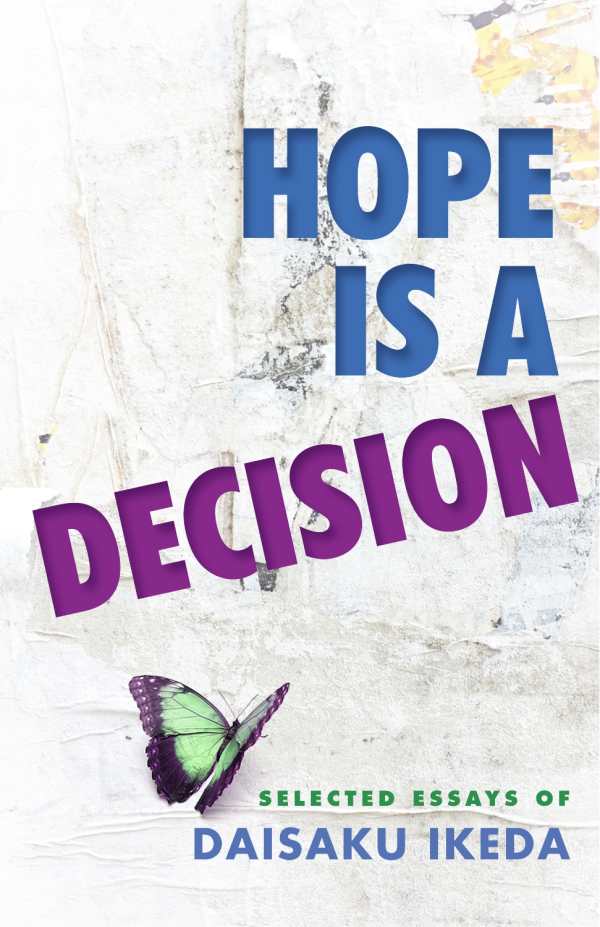Hope Is a Decision
Selected Essays of Daisaku Ikeda
Ikeda has much to say about the human condition, and he does so artfully and with great understanding.
Daisaku Ikeda’s Hope is a Decision gives a broad and insightful overview into the thinking of the acclaimed Buddhist religious leader who has been nominated for a Nobel Peace Prize and has won countless other accolades for his work on global peace after surviving the horrors of World War II.
Hope is a Decision compiles his essays on subjects such as how to approach death, how to find true happiness, and his personal interactions with Rosa Parks. Ikeda’s lyrical and contemplative musings give ample reason for hope and optimism, especially during a time when darkness seems to be descending on the world.
Ikeda writes about wide-ranging topics, such as how to overcome feelings of powerlessness, how to outgrow the struggles of youth, and how to avoid the stress from overwork that is blamed for high suicide rates and early death in Japan. He seeks answers to big questions, such as what human existence is, why people aren’t happy, whether death must loom for a person to feel truly alive, and what one person can accomplish “in the face of the vast forces that run our world.” The overarching issue of hope takes center stage, as Ikeda views it as a life-changing force that can be sparked by anything and must be nurtured regardless of circumstance.
Hope is a Decision contains many profundities and elucidates Ikeda’s deep thoughts well. In essay after essay, all relatively brief, he spells out how people can pursue personal fulfillment and the betterment of society. His message is universal and holds up over the half century during which he penned the essays. The collection succeeds in distilling complex issues to their essence. Ikeda, for instance, describes peace as “a competition between despair and hope, between disempowerment and committed persistence” and adds, “To the degree that powerlessness takes root in people’s consciousness, there is a greater tendency to resort to force. Powerlessness breeds violence.”
Strong, clear writing pervades Hope is a Decision. The book is a carefully curated selection of the best essays of a prolific writer, so all the entries shine. The essays do not stint on personal and autobiographical details. The book occasionally veers into the self-indulgent, such as when Ikeda quotes a long passage of his previous work. Sometimes the writing seems a trifle slapdash and off the cuff, such as when he anonymously quotes “another poet” he could have cited by name. But flaws are few and minor.
The grandly ambitious Hope is a Decision explores good, evil, happiness, art, aging, death, terrorism, the relentless, ominous ticking of the Doomsday Clock and, most of all, hope. Ikeda has much to say about the human condition, and he does so artfully and with great understanding.
Reviewed by
Joseph S. Pete
Disclosure: This article is not an endorsement, but a review. The publisher of this book provided free copies of the book and paid a small fee to have their book reviewed by a professional reviewer. Foreword Reviews and Clarion Reviews make no guarantee that the publisher will receive a positive review. Foreword Magazine, Inc. is disclosing this in accordance with the Federal Trade Commission’s 16 CFR, Part 255.

